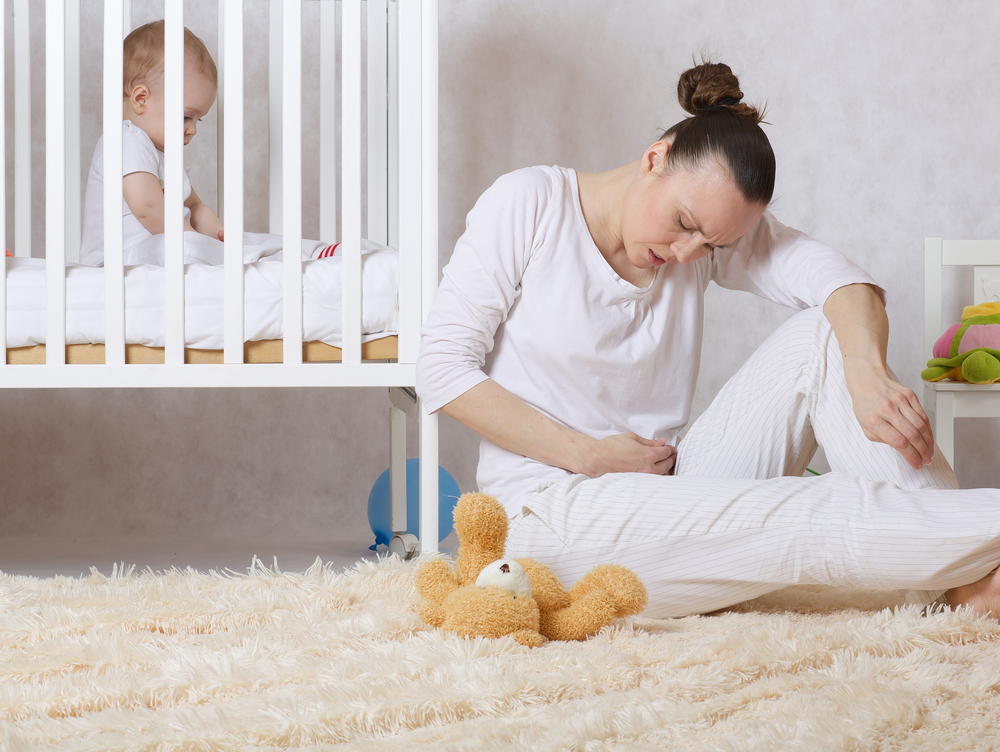Editor’s Note: Postpartum depression is a form of clinical depression that affects both mothers and fathers after childbirth, and in most women it is often undetected. Studies show more than twenty percent of women suffer symptoms of postpartum depression after childbirth–dramatically altering their family bond and the overall quality of their lives. Educating yourself on the symptoms is a key factor in identifying postpartum depression so you can seek treatment. Join us this week as UnAsked writer, Crystal Arcand, touches on the symptoms, studies and treatment for postpartum depression in a three-part series.
Having a baby is a eventful time of life. There’s the absolute joy and excitement of this new little person in your life, but there are also some feelings that may surprise you. Negative emotions may surface anywhere from four days postpartum to four months postpartum – what is typically called “baby blues.” While the blues are common and often go away within a couple of weeks, the more severe postpartum depression can last for months.
Keep an eye out for these warning signs and seek medical help if you feel you may be suffering from postpartum depression.
Postpartum depression is classified as having had five of more of the following symptoms (including one of the first two symptoms) for most of the past two weeks:
- Typical depressive symptoms – tearfulness, hopelessness, and feeling empty inside (with or without severe anxiety)
- Loss of pleasure in daily activities (all or most)
- Change in appetite or weight – either increased or decreased
- Sleep disturbances – trouble falling asleep or staying asleep
- Changes in physical characteristics – walking or talking differently (restlessly or sluggishly)
- Excessive loss of energy or fatigue
- Feeling worthless or guilty for no reason
- Inability to concentrate or make decisions
- Thoughts of death or suicide
- Thoughts of harming the baby (fearful thoughts rather than an urge to harm)
 Ask people in your support network to help you watch for these symptoms, and do what you can to help combat them, like getting enough sleep, good nutrition, and exercise. Even if you don’t have five or more of the symptoms, if any symptoms concern you, don’t hesitate to talk to your healthcare provider.
Ask people in your support network to help you watch for these symptoms, and do what you can to help combat them, like getting enough sleep, good nutrition, and exercise. Even if you don’t have five or more of the symptoms, if any symptoms concern you, don’t hesitate to talk to your healthcare provider.
Some symptoms require immediate emergency medical attention. If you experience any of these symptoms, have someone take you to the nearest emergency room immediately:
- Depersonalization – feeling removed from baby, people, and surroundings
- Sleep disturbances (even when baby is sleeping)
- Excessively confused or disorganized thinking (increasing risk of harming self, baby, or another person)
- Drastic mood changes or bizarre behavior
- Excessive agitation or restlessness
- Hallucinations involving sight, smell, hearing, or touch
- Delusional thoughts that aren’t reality-based
This time of life can be difficult, but it is one to be enjoyed. Gather your family and friends around you. They can help you to celebrate the new addition to your life – and help keep you healthy.
